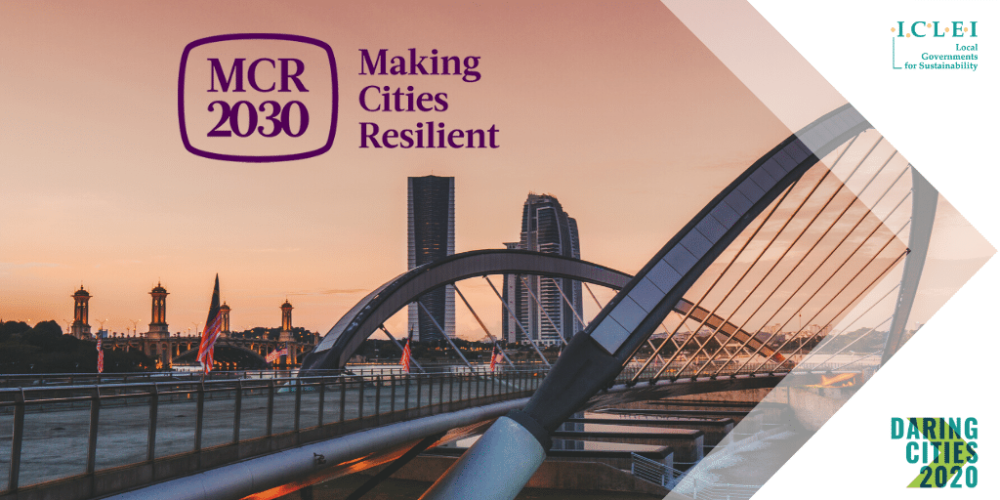You can now watch our Making Cities Resilient Session from 28th October 2021 on demand!
Most of the world’s population will be living in cities by 2050. Cities will be the frontlines to avoid the creation of new risk, reduce existing risk and strengthen resilience, including risks from health emergencies. Over the past ten years, the Making Cities Resilient Campaign has advocated the need for local government authorities to reduce risk and develop urban resilience. 4,347 cities demonstrate their commitment by joining. The Making Cities Resilient 2030 builds on the success and lessons learned of the previous decade of work under the Campaign. New partnerships and delivery mechanisms will be leveraged to focus gradually shift from advocacy to implementation support.
MCR2030 will be a global partnership of actors with expertise in urban resilience, DRR, climate change and the SDGs. It will provide a resilience roadmap for cities with defined commitments over time on how to improve local resilience. MCR2030 will provide a suite of tools and knowledge guidance, from existing pool with partners that cities can use to better reduce risk and build resilience. It will promote regional networks of partners with strong links and implementation experience so that cities are connected into a movement that can support implementation of resilience measures. By 2030, MCR2030 aims to have increasing number of cities committed to reducing local disaster/climate risk and building resilience.
This event launched MCR2030, with all core partners demonstrating support to this global partnership, for operation starting from January 2021.
Speakers
- Gino Van Begin, Secretary General, ICLEI – Local Governments for Sustainability
- Mami Mizutori, Special Representative of the Secretary-General for Disaster Risk Reduction and Head of UNDRR
- HE Ukhnaagiin Khürelsükh, Prime Minister of Mongolia
- Emilio Jatón, Mayor of Santa Fe, Argentina
- Mourade Dièye Guèye, Secretary General of the City of Dakar, Senegal
- Kathryn Oldham OBE, Chief Resilience Officer, Greater Manchester Combined Authority (GMCA), UK
- Mohammad Jaljouli, the Executive Council of Dubai, UAE
- Samira Mohammad ALRais, the Executive Council of Dubai, UAE
- Cemal BAS, Councillor of Keçiören Municipality and representative of Union of Turkish Municipalities
- Maimunah Mohd Sharif, Executive Director, UN-Habitat
- Patricia McCarney, President and CEO, World Council on City Data (WCCD), Toronto, Canada
- Lauren Sorkin, Executive Director, Resilient Cities Network
- Sameh Wahba, Global Director for the World Bank’s Urban, Disaster Risk Management, Resilience and Land Global Practice, The World Bank Group
- Tiziana Bonzon, Manager, Climate, Migration and Resilience, International Federation of Red Cross and Red Crescent Societies (IFRC)
- Kozo NAGAMI, Deputy Director General, and Group Director for Disaster Risk Reduction Group Global Environment Department, Japan International Cooperation Agency (JICA)
- Steve Crosskey, Deputy Director Infrastructure and Project Management Group, United Nations Office for Project Services (UNOPS)
- Emilia Saiz, Secretary General, United Cities and Local Governments (UCLG)
- Facilitator: Loretta Hieber Girardet, Chief, Supporting and Monitoring Sendai Framework Implementation Branch, UNDRR
